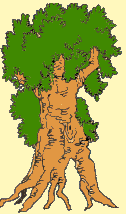STERCULIA SETIGERA
STERCULIA SETIGERA
STERCULIA SETIGERA
STERCULIA SETIGERA
Common name: Mbep, Gommier Mbep, Platane du Senegal
African names - Wolof: mbep- Bambara: kôgurani, kogosito, forka- Peuhl: bobérl, bobori - Hausa: kukuko-Goun and Fon: Azilokwe
use
The gum that flows after peeling the tree is widely used to put in millet couscous to aid digestion and increase the fecal bowl. This gum is a good appetite suppressant in a weight loss diet. It swells in the stomach, limits the consumption of food, and who eats less, loses weight. It is a mild laxative by swelling and an anti-fermentation agent.
Description.
It is a tree that can reach 10 to 15 meters high with a cylindrical trunk. The bark is smooth, greyish, and peels off in patches. The leaves that only grow in the rainy season are alternate and lobed. This tree then recalls the plane tree hence its synonym "Senegalese plane". The flowers are white in clusters at the end of the twigs. The fruits are arched-velvety, yellowish-brown follicles. The collectors dig holes in the trunk of the tree. The gum flows immediately but it takes two or three days for it to dry. It often contains wood debris and sand when sold in local markets.
Curative action
Sterculia gum easily dissolves in water to form a gel. One gram can absorb by swelling more than 250 times its volume of water while remaining in the jelly form. It also increases the volume of intestinal contents and acts as a mechanical laxative. Likewise, it soothes the feeling of hunger by giving the impression of filling the stomach. Finally, its chemical composition containing acetic acid, prevents intestinal fermentation and reduces pain due to colitis *.
Direction of use
Hunger suppressant - Laxative - Antifermental
Dissolve one to two teaspoons of gum powder in a glass of water and drink before each meal.
Note: Debark the trunk to recover the gum.
Add a comment























